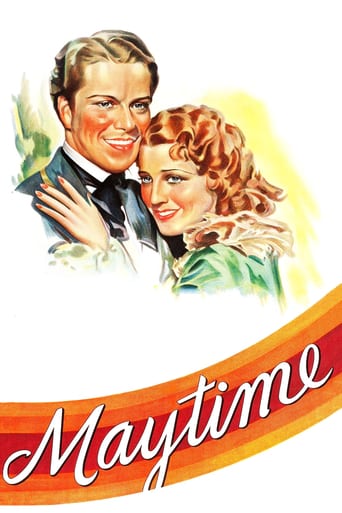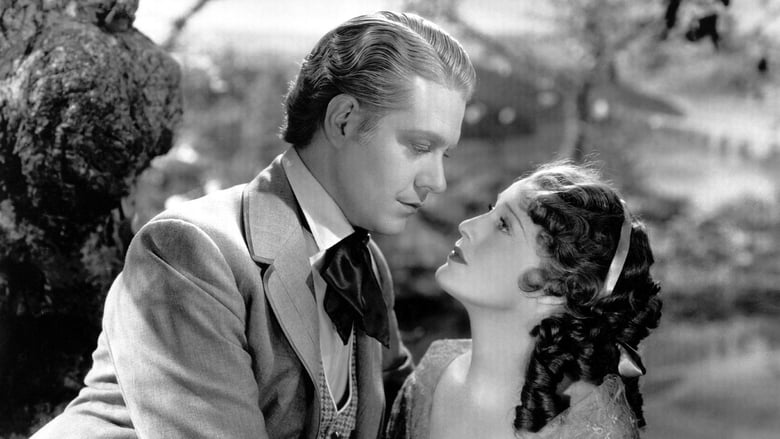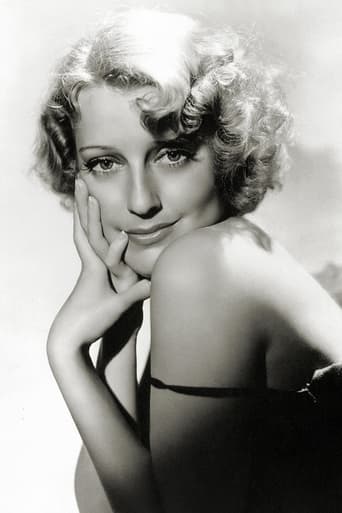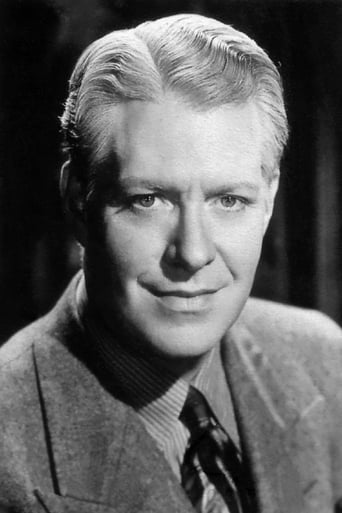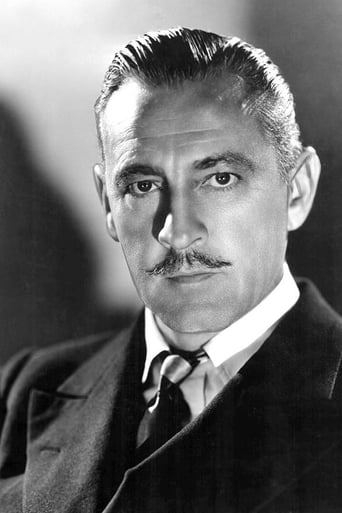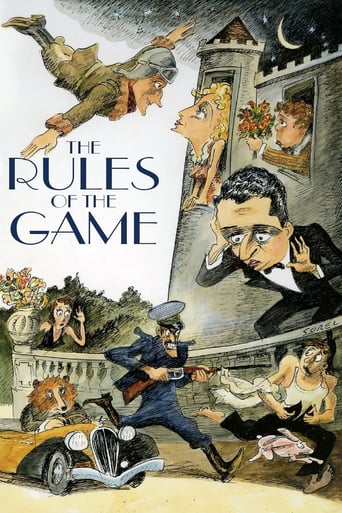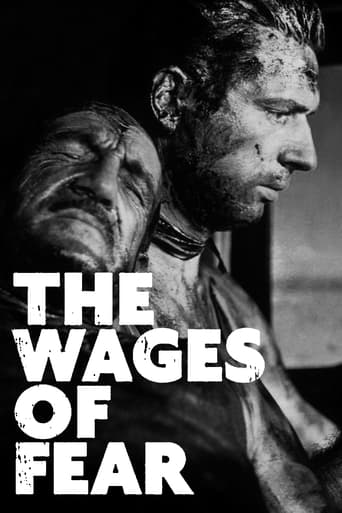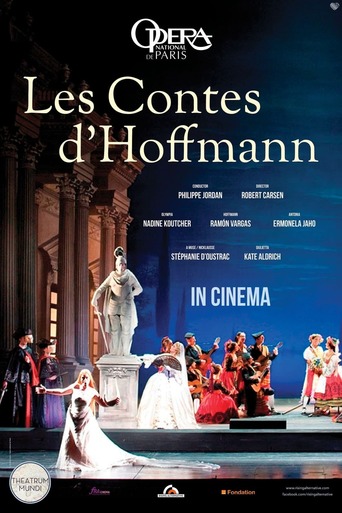Maytime (1937)
An opera star's manager tries to stop her romance with a penniless singer.
Watch Trailer
Cast


Similar titles
Reviews
Thanks for the memories!
Let's be realistic.
As Good As It Gets
When a movie has you begging for it to end not even half way through it's pure crap. We've all seen this movie and this characters millions of times, nothing new in it. Don't waste your time.
With spring flowers falling outside, what better time to revisit "Maytime" than May itself? Of course, almost 80 years have gone by since Jeanette MacDonald and Nelson Eddy played dress-up and told the haunting story of a love that was doomed from the start. Jeanette MacDonald is now an elderly woman, and she uses her story to warn a young girl similar to herself that the time to take charge of true love is now and not let it pass. Years before, MacDonald was a promising opera star and married her "Svengali" (John Barrymore), but falling in love with the handsome lower class Eddy who sat in the galleries while falling under her spell. They met one night by chance when a restless MacDonald felt compelled to head out on her own to explore a night on the town, and the rest was history. But they are not destined to be together, that is until years later, and in another time and another place.Sigmund Romberg's 1917 operetta had quite a different plot, but for the MGM version, the story that was used along with some of Romberg's music was appropriate for the team of MacDonald and Eddy, now in their third teaming together. It is also their most magnificently filmed, started by Irving Thalberg, and retaining his detail in its lavishness. Spring breezes bring out tons of falling flowers and MacDonald isn't befell by allergies, her voice gorgeous to hear in spite of the fact that sometimes, you can't quite understand all of her lyrics. There's certainly a lot of "schmaltz" (particularly by Herman Bing's overly accented innkeeper who could be confused with "Hogan's Heroes" Sergeant Schultz), but it's all gorgeous and romantic. When Eddy and MacDonald break into "Will You Remember?", it is a duet which outshines both "Ah Sweet Mystery of Life" and "Indian Love Call", their previous hits from "Naughty Marietta" and "Rose Marie".The pathos here are obvious, and you will certainly need a handkerchief. The flashback theme has been used in many similar stories, but in this case, this one remains at the top of the list of the best. Rafaela Ottiano shines as the devoted companion, there with MacDonald from the beginning to the end, and there's no villainy in Barrymore's character who is noble even if he feels he must resort to desperate measures to hold on to his pride. Of course, the later MacDonald/Eddy operetta, "Bitter Sweet", utilized a similar plot twist in keeping the lovers apart, but George Sanders' villain in that film was one dimensional and really had no other motivation but being evil to guide his vow of revenge.Directed with flair by W.S. Van Dyke, "Maytime" is an exquisite feast, a banquet of flowers and romance mixed together with song. MacDonald and Eddy would carry on for another five years on screen, but they would never top this triumph. For another gorgeous rendition of "Will You Remember?" (included with "The Road to Paradise"), check out "Deep in My Heart" where Vic Damone and Jane Powell take it on the way it may have looked with the original storyline setting in 1917.
This is a sweet movie. Color would have been way better, no matter all the reasons it first was supposed to be made in color then scrapped for economic reasons. It was started over in black and white.A bad message for women is to drop your career aspirations for a man. If the man dumps you or you dump him later, your career was an unexplored fantasy. When you are a drudge cleaning his toilets or raising his progeny, your hoped-for "what you wanted to be when you grew up" was all for naught. A man would not have been expected to give up his career for a woman. Barbara should have been told by Mornay/Morrison to pursue her career; perhaps Kip could have accompanied her on her travels -- if he really loved her, that is.Nelson and Jeanette great singers, as usual. The story was very sweet, if a tad villainous with the seedy-appearing (the Great) John Barrymore. The two composers did a nice job. Bing was buffoonish, yes, but his character had great faith in Nelson.Did Nicolai go to prison for the murder? Did he really give Jeanette her freedom? Did he commit suicide? At any rate, it looked like she would have to pay the rest of her life for her attraction to Nelson. Was there more than just kissing between Paul and Marcia? Did Marcia get pregnant and have to have an abortion like the star in real life? Apparently Nicolai was impotent. Marriage to him must have been like a prison term.
From it's blossom spread opening credits, to it's heartfelt finale, this masterpiece is, sadly, one of the most neglected of all MGM musicals. A huge box office success in the year of it's release and an Oscar nominee, it is now all but forgotten except for fans of the singing duo and film scholars. Filmed in stunning Black and White, every frame pulsates with atmosphere and emotion, drawing the viewer into an unforgettable cinematic experience. Everything in this film works. From the perfectly realized performances to the sensitive direction to the no expenses spared production. This should be up there with classics like "Wizard of Oz" and "Singin' in the Rain", and yet it remains one of the best kept secrets in filmdom. So do yourself a favor. If you enjoy musicals, and especially one's with heart, watch it, and experience the joy of one of the most romantic films ever made.
"Maytime" is, I believe, the most popular film of that very popular singing team of Nelson Eddy and Jeanette MacDonald. The story, based on the Romberg operetta, tells the story in flashback of a beautiful young opera singer (MacDonald), under the wing of her teacher (John Barrymore) who in spite of herself falls in love with a baritone (Eddy) though she's promised to marry her teacher. She chooses loyalty and career over true love, with tragic results.This isn't the most feminist film you'll ever see, as the elderly Miss Morrison (MacDonald) tells her story to a young woman who wants to throw her boyfriend over and pursue her career in New York. Nevertheless, it's the setting for a touching tale and gorgeous music sung by MacDonald and Eddy.MacDonald was beautiful and a fine actress, and she had parts of her voice, particularly the middle range, that were absolutely beautiful. Her high notes and singing technique - well, not so great. Some of it was the way female singers were taught to sing "white" high notes - backing off of them and straightening the tone, and part of it was the unsophisticated recording devices. The difference in placement between her voice and Eddy's, who sang a frontal placement all the way up, is remarkable. The montages show the great female star singing Trovatore and Wagner - not with that lyric coloratura voice, she wasn't. Eddy sings magnificently throughout, though he was never the presence that MacDonald was.Have some tissues ready. It's a lovely story, and the acting is very good. MacDonald is very touching and Barrymore is appropriately villainous and also underplayed, for those who think he was a big ham.It's one of those films you'll always remember, especially the ending, and that's what the film is about - remembrance.

